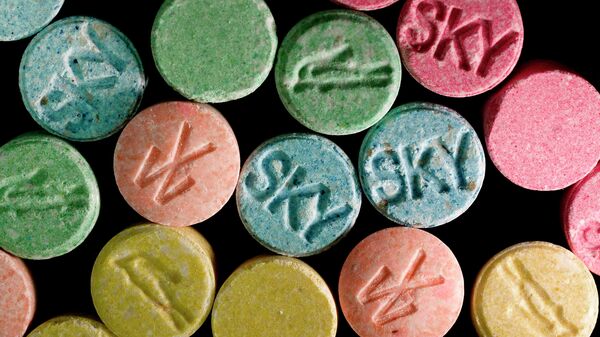Post-traumatic stress disorder (PTSD) is an anxiety disorder triggered by distressing events or frightening and stressful experiences. The trauma can be haunting and often re-lived through nightmares or flashbacks.
But what if a Class A drug could help? Scientists in America have discovered a potential for using methylenedioxymethamphetamine (MDMA) to help veterans, police officers and firefighters who suffer with chronic PTSD.
New research: MDMA-assisted psychotherapy for post-traumatic stress disorder in military veterans, firefighters, and police officers: a randomised, double-blind, dose-response, phase 2 clinical trial. https://t.co/sI1afG9F7x pic.twitter.com/hlN7pWdKiB
— The Lancet Psychiatry (@TheLancetPsych) May 1, 2018
Anxiety affects 17 percent of veterans and a third of all police and fire officers, but many of them don't respond to treatments such as psychotherapy and antidepressants.
Having PTSD does not mean you are broken.#PTSD #stress #PostTraumatic #trauma #anxiety #anxietydisorder #CSA #cptsd #ptsdchat #warveterans #veterans #CSAsurvivors #mentalillness #Mentalhealth #EndTheStigma pic.twitter.com/52rox2P73A
— HI — Function (@hifunctionorg) April 25, 2018
Researchers randomly selected service personnel who had PTSD for more than six months, split them up into three groups and gave them 30, 75 or 125 milligrams of MDMA respectively, plus psychotherapy.
The exciting news just keeps on coming!! MAPS’ MDMA- Assisted Psychotherapy for PTSD study has just been published in The Lancet! Great to see this research in such a prestigious journal! We wish MAPS well in Phase 3! 😀🧠👍🏻👩🏻🔬👨🏽🔬❤️ #psychedelicresearch #mdma pic.twitter.com/uTVsIVPtBB
— Breaking Convention (@breakingcon) May 3, 2018
Veterans who received the full dose of MDMA showed signs of their anxiety disorder significantly decreasing. The researchers concluded that "active doses (75 mg and 125 mg) of MDMA with adjunctive psychotherapy in a controlled setting were effective and well tolerated in reducing PTSD symptoms in veterans and first responders" the academic paper states, the findings published in medical journal Lancet Psychiatry.
In Britain, MDMA or ecstasy remains illegal, anyone caught in possession of it could face up to seven years in jail — dealing MDMA carries a life prison sentence


